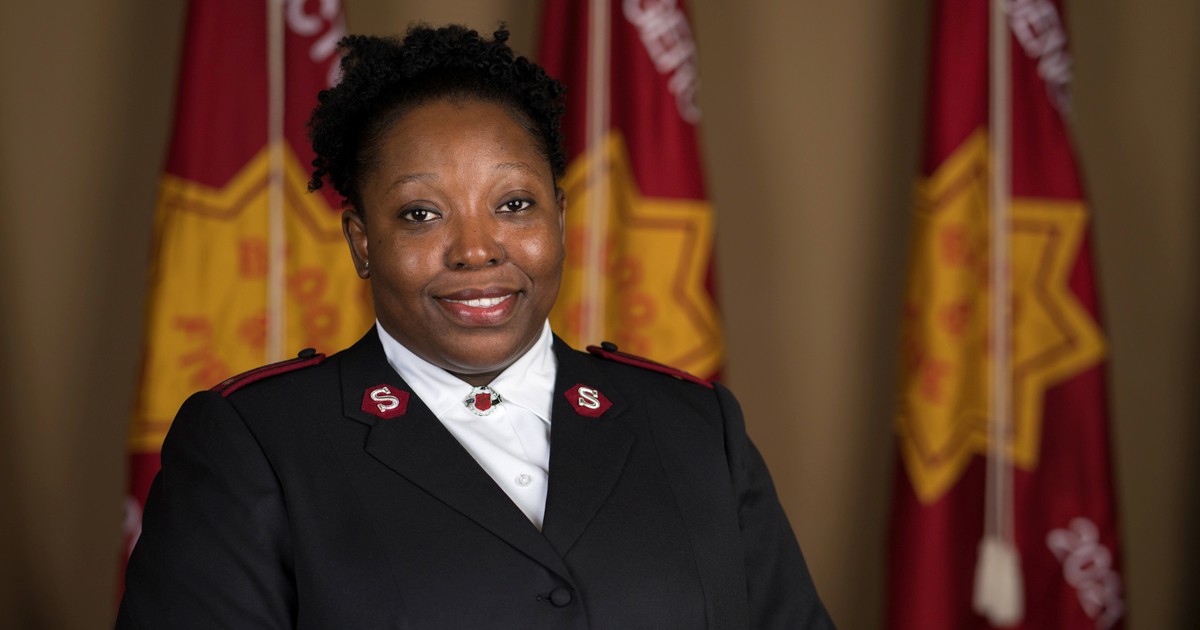In our culture, hospitality is a forgotten way of life. Even in our churches, a weak cup of coffee after the morning service is often our only expression of this ancient practice. But hospitality is at the heart of our faith, rooted in God's welcome toward us, in sending his Son to make us no longer enemies, but friends (see Romans 5:10-11). In Reaching Out, Henri Nouwen writes that this is, in fact, our Christian vocation—to convert hostility into hospitality, strangers into guests.
Showing hospitality isn't about impressing people with our cooking and decorating skills; you don't need to be Martha Stewart. It's about opening our lives to others, creating a space where strangers may enter and discover the welcoming spirit of Christ. Rowan Williams, former Archbishop of Canterbury, beautifully describes our calling to “become a place where God happens for somebody else.”
This calling requires humility. When we find ourselves with someone unknown or unexpected, different or even difficult, we are being invited to be hospitable.
It also requires time. We can provide a meal or a carefully prepared room, but the deeper need is for a sense of belonging, safety and love, expressed through the gift of presence. We can offer this gift in many ways: listening intently as someone shares, instead of thinking about what you want to say; taking off your headphones so you're available for conversation during your commute home; inviting a neighbour's children to join yours to play so she can have some quiet time; or sharing part of your vegetable garden with strangers.
Consider how God's work of grace in your life can be an open and spacious meeting place for others. Here are some ideas for further reflection, study and action.
1. Prayerfully meditate on Romans 5:6-11 from The Message. Keep a journal as you pray and ask God to help you become more like him in the way he welcomes and loves.
2. Read Genesis 18:1-15, 1 Kings 17:8- 24 and Luke 24:13-35. Discuss how these stories show hospitality bringing life to both guest and host.
3. Ask yourself: How can I be a better listener? How can I offer the gifts of presence, safety and love? What obstacles keep me from offering unrushed time to others?
4. Reflect on these questions: Am I a place where God happens for others? How do I live with my own needs and failures in a way that points others to God, and creates a safe place for them to share their own needs and failures?
5. Ask a trusted and loving friend to give you honest feedback about the ways they see you living out Christian hospitality. Take the risk to also ask them to point out any “blind spots” in your life that may prevent you from being a welcoming and gracious presence to others.
6. Don't compare yourself to others; instead, ask God to show you the gift he has given you to share: “Show hospitality to one another without grumbling. As each has received a gift, use it to serve one another, as good stewards of God's varied grace” (1 Peter 4:9-10 ESV). When you consider the possibilities for offering a sense of home, rest and refreshment to others, what excites you?
7. Brainstorm creative ways you can offer hospitality to strangers as a family or small group.
God is extravagant in his welcoming and giving. When Jesus sent out his disciples, he reminded them, “Freely you have received; freely give” (Matthew 10:8). In a world obsessed with status and competition, no-strings-attached hospitality is a subversive and healing practice. We can, by the Spirit, reflect the nature of our initiating, gracious, extravagant God.
Carla and Jonathan Evans are the corps leaders at Boundless Vancouver.
Showing hospitality isn't about impressing people with our cooking and decorating skills; you don't need to be Martha Stewart. It's about opening our lives to others, creating a space where strangers may enter and discover the welcoming spirit of Christ. Rowan Williams, former Archbishop of Canterbury, beautifully describes our calling to “become a place where God happens for somebody else.”
Showing hospitality isn't about impressing people with our cooking and decorating skills.
This calling requires humility. When we find ourselves with someone unknown or unexpected, different or even difficult, we are being invited to be hospitable.
It also requires time. We can provide a meal or a carefully prepared room, but the deeper need is for a sense of belonging, safety and love, expressed through the gift of presence. We can offer this gift in many ways: listening intently as someone shares, instead of thinking about what you want to say; taking off your headphones so you're available for conversation during your commute home; inviting a neighbour's children to join yours to play so she can have some quiet time; or sharing part of your vegetable garden with strangers.
Consider how God's work of grace in your life can be an open and spacious meeting place for others. Here are some ideas for further reflection, study and action.
1. Prayerfully meditate on Romans 5:6-11 from The Message. Keep a journal as you pray and ask God to help you become more like him in the way he welcomes and loves.
2. Read Genesis 18:1-15, 1 Kings 17:8- 24 and Luke 24:13-35. Discuss how these stories show hospitality bringing life to both guest and host.
3. Ask yourself: How can I be a better listener? How can I offer the gifts of presence, safety and love? What obstacles keep me from offering unrushed time to others?
4. Reflect on these questions: Am I a place where God happens for others? How do I live with my own needs and failures in a way that points others to God, and creates a safe place for them to share their own needs and failures?
5. Ask a trusted and loving friend to give you honest feedback about the ways they see you living out Christian hospitality. Take the risk to also ask them to point out any “blind spots” in your life that may prevent you from being a welcoming and gracious presence to others.
6. Don't compare yourself to others; instead, ask God to show you the gift he has given you to share: “Show hospitality to one another without grumbling. As each has received a gift, use it to serve one another, as good stewards of God's varied grace” (1 Peter 4:9-10 ESV). When you consider the possibilities for offering a sense of home, rest and refreshment to others, what excites you?
7. Brainstorm creative ways you can offer hospitality to strangers as a family or small group.
God is extravagant in his welcoming and giving. When Jesus sent out his disciples, he reminded them, “Freely you have received; freely give” (Matthew 10:8). In a world obsessed with status and competition, no-strings-attached hospitality is a subversive and healing practice. We can, by the Spirit, reflect the nature of our initiating, gracious, extravagant God.
Carla and Jonathan Evans are the corps leaders at Boundless Vancouver.










Leave a Comment